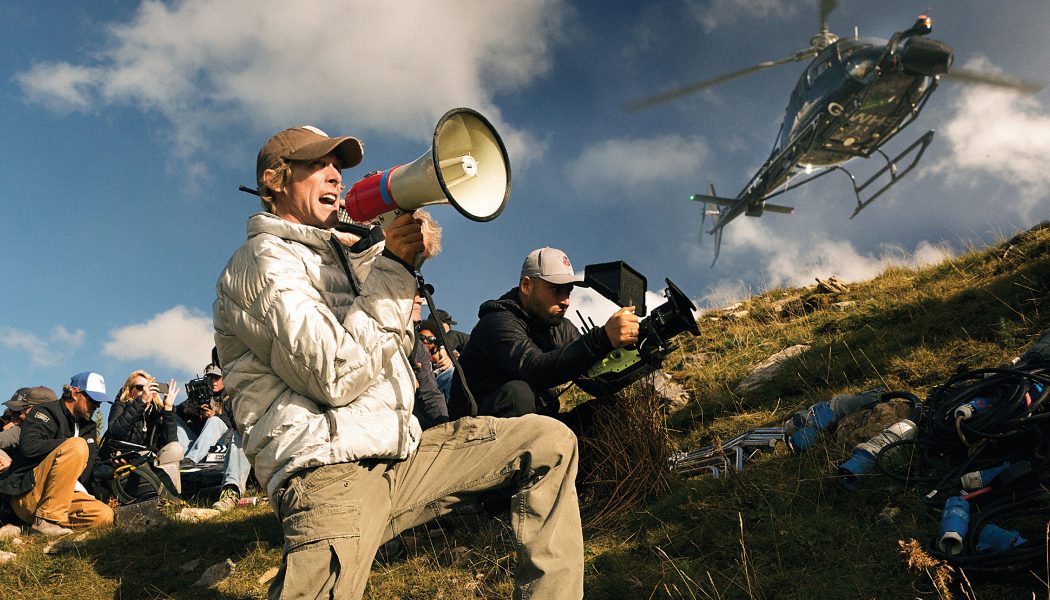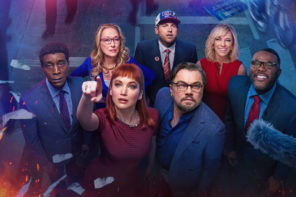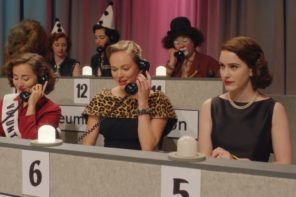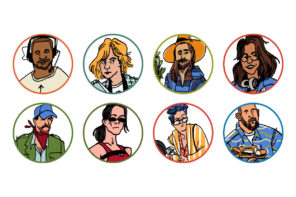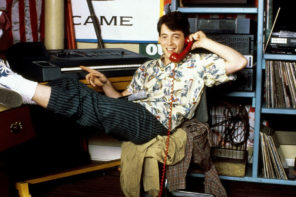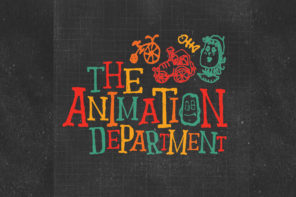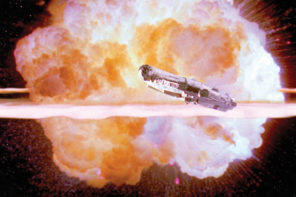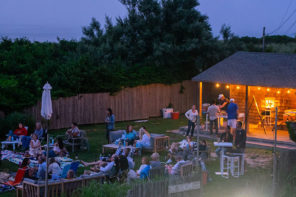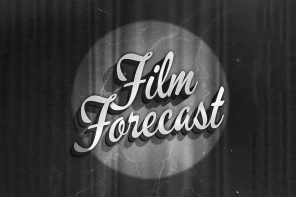Top image copyright Paramount Pictures, Inc. | Photo by Andrew Cooper
Master of Disaster
If there is an asteroid on a collision course with Earth, giant robots fist fighting on a freeway overpass or something very big being very much blown to smithereens, chances are Michael Bay had something to do with it.
The director brings in box office billions but still has the swagger and sensibility of a renegade. His fly-by-the-seat-of-his-pants style goes back to his film school days, when, shooting in a famed downtown LA building, he was asked if he had a fire permit and responded, “It’s at my house.” He, of course, did not have one. “But, my film wasn’t going to be able to shoot there and it took us a month to get in,” he tells Whalebone. It’s grown far beyond bluffing security guards to talking his way onto battleships during a military conflict with Libya and convincing two nuclear sub admirals that they should let him set a Guinness Book World Record for making things go boom at their base in order the get the verity he wanted by actually filming Pearl Harbor in Pearl Harbor.There was dynamite everywhere.
Thing is, he’s having a blast doing it.
What was your favorite movie theater when you were a kid?
Michael Bay: Well, there’s a place called Westwood in Los Angeles. And when I was growing up, Westwood was considered the movie capital of the world. This was before mini-malls or malls. So there was something like twenty-something movie theaters all within a square mile. And the theater that I would go to—to me the greatest cinema experience is at the Fox Theatre in Westwood Village, the one with the big white tall column and a gigantic, huge ceiling. It’s a 1,200 person house. I remember seeing Rocky there and Alien there and The Shining there. That was the place where—I built my dreams in that room. That was the room that really helped change me and made me yearn to be a director.
There was also the Avco, not as nice, but it still had a great energy. And something about the long lines, people hate them, but it’s kind of like the anticipation of the lines, that’s kind of the thing that I miss. Growing up as a kid, there were people who would get in lines days before sometimes.
I saw Star Wars at the Avco. I remember that day. There are seminal times in your life you remember and you remember big movies and Star Wars was like one of those movies that I remember waiting in line with my parents, seeing it and it’s a movie that kind of helped change the whole business. In terms of just using technology and just showing you that you can do all this visual kind of effects stuff that’s brand new and put it into one movie and make a whole other world far, far away.
What’s a movie, any movie that you wish you could have directed?
MB: It’s either Lawrence of Arabia, just because it’s a big scope canvas, and I’m always so fond of Ridley Scott’s Alien. Original Alien. And then, one of the movies that that’s when I decided I wanted to direct— that was the day at Grauman’s Chinese Theater when I when I saw Raiders of the Lost Ark.
It’s funny, I filed the storyboards when I was 15 and a half, saving up for a car, Datsun 280z. So I got a summer job working at Lucasfilm. I’m filing Raiders of the Lost Ark storyboards.
So Raiders paid for your Datsun?
MB: No. Apparently my parents, they took it to a mechanic who said it’s a piece of shit. Can’t buy it.
Ultimate summer movie ingredient list?
MB: First of all they’ve got to give you that big cinema experience with the epic shots, big fun action, great characters. That’s what summertime is all about. It’s like, they keep stretching it out now, so now it gets a little more confusing. But when I was a kid, you knew definitively, okay, these are the summer movies, these are the ones that are the big ticket, these are the ones you want to wait in line for. You look forward to those. Now I think, nowadays it’s getting more blurred with all the streaming and so much stuff out there. There’s so much stuff.
Biggest explosion you’ve ever filmed?
MB: The Pearl Harbor explosion. I was flying into Pearl Harbor looking out the plane window. I’m like, “What is that?” There were all these boats, old looking ships, not World War II type, but old enough, digitally if we change some. But big hulls all parked together. It was the inactive fleet. Stuff they’re either going to sink for a reef or stuff they’re going to sell to different third world countries. And I asked, “Can we do explosions here?”
It took three and a half months to rig, which is a massive amount of time. It was close to 700 events. It went off in eight seconds. We’re talking dynamite in the water. There was dynamite everywhere. Stuff was rigged on so many ships. We also had 17 planes in the air and you’re dealing with big puffy Hawaiian clouds. So you have to deal with sun, you got to wait for the right time where you’re going to get enough sun because the puffy clouds are moving through. We had to shut down a freeway that was three miles away. This was a big deal. It was my fourth movie. There’s something on the water where if a boat crosses a red line, meaning that you could kill guys in the boats because it’s very dangerous because there’s KinePak—which is dynamite in the water— everywhere. It can blow the boat up, kill the guys.
The amount of stuff for this one explosion was— it’s staggering how it got pulled off.
Like I learned from film school, don’t take no for an answer.
How many shots was that?
MB: It was 12 cameras. We had aerials above. We had helicopters. I think it’s probably about 30 seconds of film, but it’s full-on gigantic explosions. The plume went hundreds and hundreds of feet in the air. There was a spark that went off to a small little side island and set a forest fire, and we had to go in to put out. But it was a massive undertaking, this explosion.
Any others stand out?
MB: If we’re talking about explosions, there’s one that, the one that I feel the worst about, is Churchill’s house— Winston Churchill’s house, Blenheim Palace in England. We did an explosion there. I feel the worst about that one because it survived the whole Hitler onslaught and the windows, everything survived. But my explosion on [Transformers: The Last Knight] three years ago blew out one of those windows. So that really sucks. And original Coke bottle type glass. They don’t make that anymore.
Something people miss about one of your movies?
MB: When I did Bad Boys, I didn’t have a lot of money and I’ve gotten very maligned for this fast cutting. And I remember my editor saying, “You can’t cut that that fast.” Yes, you can. I’m trying to create a new style. Yes, you can. “You can’t.” I said, “Yes, you can.” And we would get in fights about it. And because I didn’t have a lot of money, I was cutting faster to create a kind of cinematic style. So I got a lot of shit for it. But you look today at the cutting of movies and action movies today and they look like Bad Boys 20 years ago. My action movies are some of the foundation of film language that you see in action movies today.
There used to be a few hundred shots in a whole movie. Now you look at something like Avengers: Infinity War and there’ll be 500 shots in a single action sequence, which is exactly what you’re talking about.
MB: Well that’s something else that they missed. I still don’t use a green screen. The young ones coming up, they’re not doing it real or they don’t know how to do it real. It’s a lost art and it’s a dying art—doing real, big stunts and they’re just going with digital effects nowadays. And I think that hurts a lot of things.
What do you think is lost when people stop doing practical, real-life effects?
MB: I think it takes a lot of the soul out of it, that’s what it is. It takes the soul out of it. It kind of becomes a little bit too computerized. Everyone understands light because they see light all the time but they may not understand it. But they understand when it looks screwed up. They can’t articulate it but they know, oh that looks fake. It looks fake because you know what everything looks like when you’re walking around and you see how light hits things and sets kind of just make it, it becomes more plastic and just doesn’t have that soul to it.
Did you have more fun making The Rock or working with Dwayne Johnson?
MB: Alright, The Rock was my second movie. And the very first directing note I gave to Sean Connery, very first note, scared out of my mind. I’m a kid, okay. And I’m like, “Um, Sean, um, can you do that less charming please?” And he goes, “Sure, boy. Sure, boy.” My name was “boy.” He would always call me “boy” on the set. But the guy taught me a lot. Alright, he was tough. He taught me a lot.
Now Dwayne, he’s fun. When I worked with him on Pain and Gain—I still think it’s one of his great performances. A week before, he chickened out. He’s like, “I can’t do it. I can’t do it. I can’t do it.” I wrote him this long impassioned letter and again, like I learned from film school, don’t take no for an answer. All right, so I have an actor freaking out and I’m like, “You can do it, you are going to be the secret weapon. They are going to empathize with you.” And he did such a great job.
Where do you fall on Spielberg’s view that movies on Netflix shouldn’t be considered for Academy Awards and things like that?
MB: I talked to Steven about it. He got a little misquoted there. Listen, the world has changed in the past three years. It’s all changed. And we just got to get with it and understand it’s changed and we’ve got to accept it. I think a movie is a movie. Yes, we want the theater experience to survive, but we’ve got to go with the times. And people want things now in different ways and they want it when they want it. Like my dogs, [sounds of multiple dogs barking in the background], you can hear them barking, they want their food now.
But listen, I’m all about the theater experience and I always said I would never do a streaming movie. And I just did this movie for Netflix. I had a great time. And it’s a movie that I don’t think a studio would have done.
I’m just learning all about it. Literally, I just learned how to play Netflix in my house about two weeks ago. And I’m loving it, by the way. But literally that’s how stupid I’ve been. I didn’t know how to download it.
It’s a lost art and it’s a dying art—doing real, big stunts and they’re just going with digital effects nowadays. And I think that hurts a lot of things.
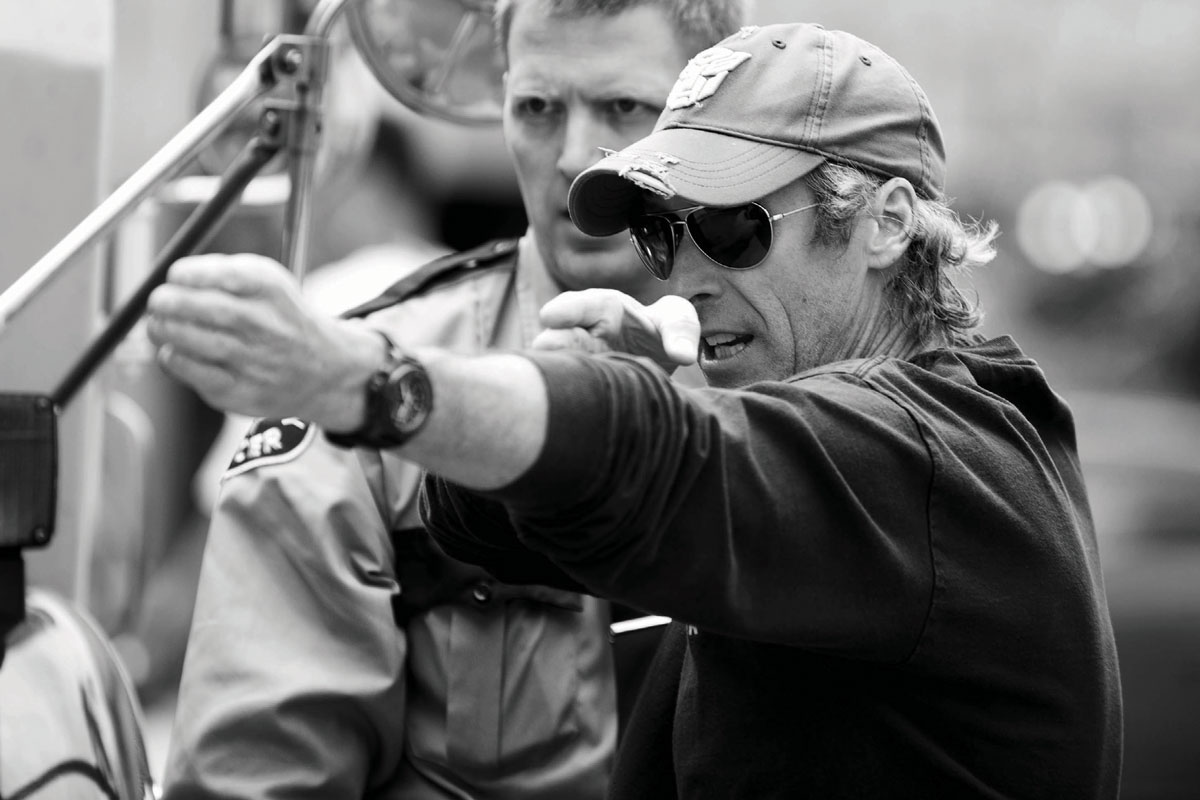
What’s the highest form of moviemaking success?
MB: It’s not the awards that, eternally, we give. It all goes back to film school. When I was in college, I did a senior thesis, there was like 250 people in the theater watching my short 10-minute film and all of a sudden 250 people started laughing and I’m like, “Oh my God, this is amazing.” And that was, right there, that’s what it is. I just care about entertaining audiences and giving them an experience—make them feel something, excite them, entertain them, make them laugh. To me, that’s the highest form, because we make it to entertain people or have them feel something.
How do you know that, well, this all works, this is it, this is making people happy?
MB: I love when I’m doing a very vocal kind of movie, like Bad Boys would be a vocal movie or I guess the first Transformers was a vocal movie, Armageddon was a vocal move. Where the audience is very involved and big laughs and applause and stuff like that. I would love to go to theaters and watch people, watch the movie. And to me that was the joy of it. And you do it about four times and then it’s over, then you’ve got to go to your next thing. So it’s a lot of blood, sweat and tears the whole crew puts in.
And do you get to do that, just go to the multiplex in the mall and kind of blend in and watch how people react to your movies?
MB: Yeah, yeah, I do. Like a normal Joe.
MICHAEL BAY TELLS US ABOUT THAT TIME HE FILMED A BEER COMMERCIAL WITH DAVID NUUHIWA
Maybe it was 20, 25 years ago, I did a surfing commercial for Budweiser in Fiji with this longboarder named David Nuuhiwa and some other guys. We’d take this old yacht, we would go out to Cloudbreak which is in Tavarua. And going home one night, one of the surfers, young surfer, he draws this little thing on a napkin. He goes, “Do you like this design?” I said, “No, that design sucks.” He goes, “It’s going to be my surf company.” It was the Volcom logo.
Then we go back to Hawaii and I’m shooting an insert shot on the North Shore, and David Nuuhiwa, the longboarder, we’re a hundred yards out and I have a waterproof camera. A shitty camera, I can barely get my eye on it. He was pretending to catch a wave, like an insert shot, and literally I’m in the water up to my neck, my board’s right at the tip of his board. My neck is sticking out and he looks right past me and yells as loud as possible, “Shark!”
This fucking 17-foot tiger shark went right under me. It was crazy. It was the year they invented the jet ski lifeguards and they scooped me out of the water. So that’s my surfing commercial.

